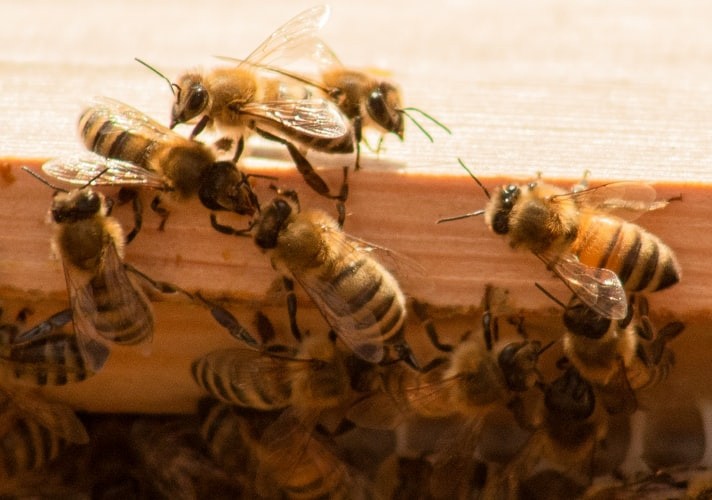Honeybee Venom Destroys Breast Cancer Cells, New Study Shows
A new study found out that honeybee venom rapidly destroyed the triple-negative breast cancer and HER2-enriched breast cancer cells.

Dr. Ciara Duffy from the Harry Perkins Institute of Medical Research and The University of Western Australia tested the venom's effect on the clinical subtypes of breast cancer. She used over 300 venoms from honeybees and bumblebees in England, Ireland, and Perth, Western Australia.
Her study found out that honeybees' venom rapidly destroyed triple-negative breast cancer, which has limited options. It also destroyed HER2-enriched breast cancer cells, according to the study published in the journal of NPJ Precision Oncology.
The study was conducted to investigate the anti-cancer properties of melittin, an active component of honeybee venom. Dr. Duffy said that the venom was extremely potent, according to a recent news release.
Dr. Duffy added that her team found that found both honeybee venom and melittin significantly, selectively, and rapidly reduced the viability of triple-negative breast cancer and HER2-enriched breast cancer cells, according to a published article in Fox News.
She also explained, "We tested a very small, positively charged peptide in honeybee venom called melittin, which we could reproduce synthetically, and found that the synthetic product mirrored the majority of the anti-cancer effects of honeybee venom."
The lead author of the study also expounded that melittin did destroy not only the cancer cells but also reduced the cancer cells' chemical messages that enable cancer to divide and proliferate within 20 minutes. They also found that it destroys cancer cell membranes within 60 minutes.
They looked into how honeybee venom and melittin affect the cancer signaling pathways. These chemical messages are fundamental for cancer cell growth and reproduction, and they are surprised because these signaling pathways were shut down.
She also added, "We found that melittin can be used with small molecules or chemotherapies, such as docetaxel, to treat highly-aggressive breast cancer types. The combination of melittin and docetaxel was extremely efficient in reducing tumor growth in mice."
Professor Peter Klinken, Western Australia's chief scientist, said that he was also surprised by Dr. Duffy's research. He said that the honeybee venom that suppresses the growth of deadly breast cancer cells, particularly the triple-negative breast cancer, is a significant discovery.
Moreover, Dr. Duffy concluded I found that the European honeybee in Australia, Ireland, and England produced almost identical effects in breast cancer compared to normal cells. However, bumblebee venom was unable to induce cell death even at very high concentrations."
She also explained that there is still a need for further study to formally assess and determine the best method of providing melittin, maximum tolerated doses, and potential toxicities.
This is a very significant discovery because breast cancer is still one of the leading causes among women worldwide. This will help not millions of women who continue to suffer cancer that is slowly killing them. Hopefully, this will be the cure to stop the growth of cancer cells that are responsible for breast cancer.
Subscribe to Latin Post!
Sign up for our free newsletter for the Latest coverage!

















